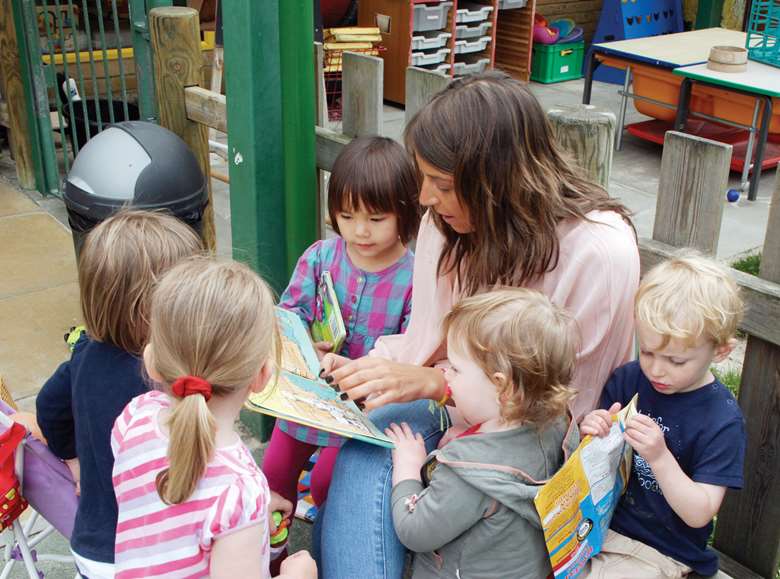Early years childcare 'beneficial for language and behaviour'
Joe Lepper
Wednesday, July 12, 2017
A Department for Education-commissioned study has found that early years education for two-year-olds leads to improvements in language and behaviour, resulting in long-term financial benefits.

The Study of Early Education and Development into the value for money of early education tracked the progress of around 6,000 children, finding that early education at age two had a significant impact on language and socio-emotional development when children were assessed at age three.
The study estimated that if this resulted in attainment by age seven then the financial benefits over their life, through reducing the risk of truancy and exclusion, higher earnings and reducing the cost of special educational need support, would be around £60,000 per child.
The benefits of early education and care were found regardless of a child's family level of disadvantage.
The study found that education and care with childminders at age two had a significant positive effect on children's language development and behaviour at the age of three.
Meanwhile, group-based settings such as nurseries and playgroups were also shown to have positive effects on children's socio-emotional development including how well they get along with other children.
"This report echoes what we in the sector have long argued: that an investment into early education is an investment into the future of society," said Neil Leitch, chief executive of the Pre-school Learning Alliance.
"But of course, it's not enough to simply create more childcare places. For early years policy to have the long-term positive impact that this report demonstrates it can, government must focus on improving and maintaining the quality of early education in this country."
Liz Bayram, chief executive of the Professional Association for Childcare and Early Years (Pacey) said: "The latest reports provide yet more robust evidence of the high-quality care and education offered by registered childminders, in particular their positive impact on verbal ability, reduced emotional symptoms, and better behavioural self-regulation.
"This comes in the wake of news that 92 per cent of childminders now have a ‘good' or ‘outstanding' grade from Ofsted."
However, she is concerned that recent figures have shown a decline in the number of childminders and fears that September's roll out of a doubling of the free childcare entitlement to 30 hours will see more leave due to the higher costs involved.
Pacey estimates the average childminder will see a £400 shortfall per child per year for every 30-hour place they offer.
The study, which was conducted by the National Centre for Social Research (NatCen) in collaboration with the University of Oxford, Action for Children, and Frontier Economics, found that far greater long-term savings would have to be achieved for full-time (30 hours) early education to prove it offers better value for money than current part-time (15 hours) provision.
This is due to the annual cost of full-time early education being 2.7 times that of part-time education.
Dr Svetlana Speight, evaluation manager at the National Centre for Social Research, which is involved in the study, said: "At a time when the main political parties are debating extending childcare, this report provides striking evidence on the benefits of early education at the age of two for all children regardless of their circumstances."




